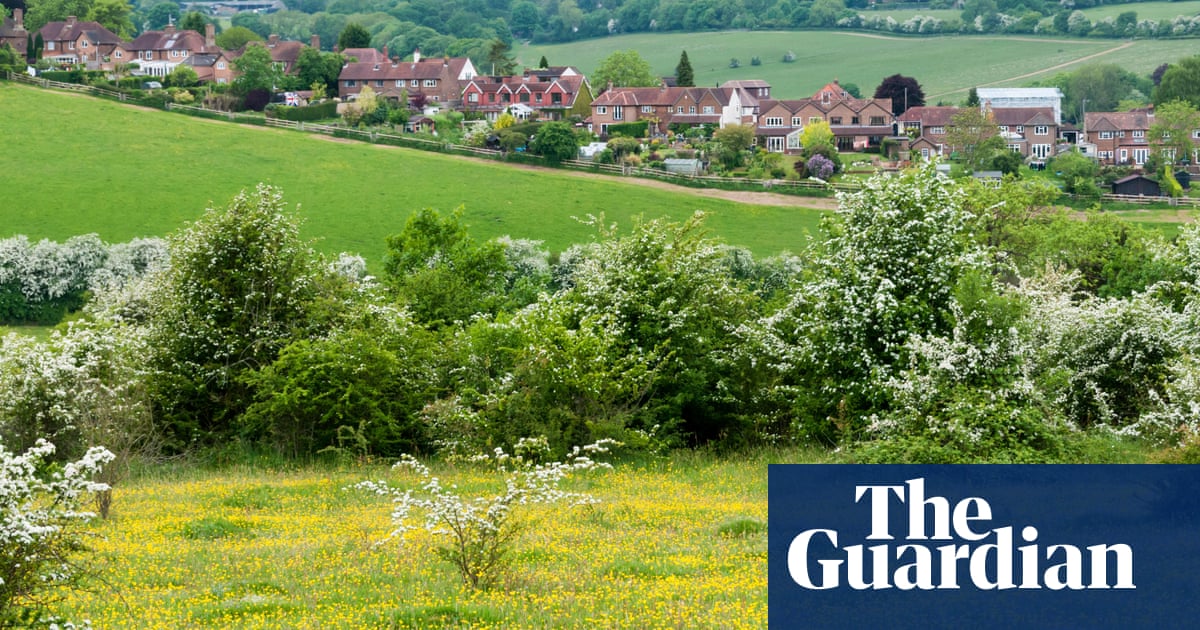Sadiq Khan is announcing plans to build on parts of London’s green belt, in a dramatic shift in housing policy aimed at tackling “the most profound housing crisis in the capital’s history”.
In a major speech on Friday, the mayor ofLondonis expected to say the scale of the challenge, which could need about 1m new homes built in the next decade, requires a break from longstanding taboos.
It marks the first time city hall will support the strategic release of low-quality or inaccessible green belt land near transport links in order to provide hundreds of thousands of new affordable homes.
“The status quo is wrong, out-of date, and simply unsustainable”, Khan will say. “Development on carefully chosen parts of the green belt – done in the right way – would allow us to unlock hundreds of thousands of good-quality new homes for Londoners.
“As mayor, I’m not willing to ignore such a prospect just because it might be politically difficult – not when the life chances of the next generation of Londoners are on the line.”
London currently builds about 35,000 homes each year, less than half of the 88,000 homes Khan said the city needed to meet demand annually. The mayor reaffirmed his commitment to prioritising building homes on brownfield sites, but said “this alone will not be enough to meet our needs”.
This policy will form part of a wider consultation on the next London Plan, which will set out Khan’s vision for how the capital will develop in the next 20-25 years. City hall has commissioned a city-wide green belt review, in line with the government’s requirements, to explore all options for finding enough land to meet housing need across the capital.
Khan said this announcement did not contradict his self-proclaimed achievement of being the “greenest mayor London has ever had”, because he would increase biodiversity and the amount of land that was genuinely green and accessible while building on the green belt.
His proposals have already received support from the political and housing sector. Angela Rayner, the deputy prime minister and housing secretary, said the government welcomed Khan’s “bold” proposal, which “rises to the challenge to tackle London’s housing crisis”. She added: “We cannot end the housing crisis and build the 1.5m homes we need without London being ambitious in its approach.”
London councils also welcomed the plan, as did the chief executive of Generation Rent, Ben Twomey, who said the policy would protect Londoners from the “eye-watering cost of renting” that had forced many into poverty and homelessness.
Despite this, nature campaigners have told Khan that his plans should not remove precious parks and green spaces from people already living in areas that lack them.
Roger Mortlock, chief executive of the countryside charity CPRE, said: “The answer [to the housing crisis] isn’t build on local parks, playing fields and farmland, it’s to transform the market and hold developers to account with ambitious and enforceable targets for social and genuinely affordable homes.”
New developments should contain nature areas and green spaces, Kate Ashbrook, the general secretary of the Open Spaces Society, said, while Shaun Spiers of Green Alliance said poor-quality green belt could be converted to high-quality green space, which urban areas often lacked.
Khan acknowledged the controversy, but called on Londoners to “keep an open mind” and engage with the evidence. “We have young professionals stuck living in their childhood bedrooms for years on end; Londoners having to endure cold, damp accommodation that isn’t fit for human habitation; couples reluctantly moving out of the capital to start a family; and London primary schools closing because young families have been priced out of the area.
“It breaks my heart. The damage the housing crisis is causing is pervasive and profound. We simply cannot let it continue.”
